By Jill MacKeith
From Issue 34, January 2018
“I wrote that one in a frenzy”, Adam Horovitz explained, talking of The Abattoir. “I had to get it all out and work through what I thought about it”. And indeed, there was a lot to get out – save one other, it is the longest poem in the whole collection of The Soil Never Sleeps, his latest book.
As a vegetarian poet, Adam does not often find himself in abattoirs. In fact, becoming poet in residence of the Pasture-Fed Livestock Association (PFLA) for 2017 was not something he could have predicted, despite his connection to the pastureland surrounding the beautiful Slad Valley where he was brought up.
As a writer, Horovitz told me, he’s always been interested in the relationship between mankind and the landscape, eager to “tease out the more metaphysical connections between man, land and animals”. Indeed, that was a large aspect of his previous book, A Thousand Laurie Lees: The Centenary Celebration of a Man and a Valley, which focuses on the land and landscape of the Slad Valley. While Adam was in the midst of writing about this landscape of the past (in 2013), John Meadley (Chair of the PFLA) approached him and asked him to consider a residency, looking at a landscape into the future. The challenge was too enticing to let pass, and so, over four seasons and travelling to four farms across England and Wales, from the Yorkshire Dales to Cornwall, Kent to the Black Mountains, Adam immersed himself in the life and landscape of the PFLA farming community.
Armed with “a moleskin notepad and a pen that could withstand driving rain”, Adam shadowed the farmers and explored the land, taking photographs that not only acted as an aide-memoire for writing, but also proved invaluable to artist Jo Sanders who provided the striking ink illustrations accompanying Horovitz’s words on the page. “Jo illustrated my previous book, A Thousand Laurie Lees”, explained Adam, “and I was keen to work with her again. She’s managed to really capture the essence of the farms I stayed at and has woven parts of the poems into the artwork”. It’s a beautiful representation. The poems in the collection follow the order in which Adam visited the farms: Spring, Autumn and Winter 2016, followed by Summer 2017. The EU Referendum took place in the middle of the residency, the outcome of which provided much food for thought for the final section of the book, which investigates the ethics, politics and future of farming.
Two poems from the collection, The Soil Never Sleeps and Three Options for Farmers were written at the Oxford Real Farming Conference, January 2017, well in the wake of Brexit. Adam explained how he conceived them. “They were essentially cuttings from words and phrases that I had heard the farmers use during the conference which I grafted together and presented back to them”. Some of the farmers were rather bemused by his residency: “They asked John Meadley, ‘What are you doing getting a poet?!’. So they were then rather surprised to hear their own voices presented back to them in that way, rather than just as a curious set of facts”.
He acknowledges that the experience was an extraordinary learning process. In the introduction to The Soil Never Sleeps, Adam admits, “Growing up I had a mythic sense of the landscape instilled in me; most of my understanding of its minutiae, of what made it work and what work it made, came from reading.” I asked him if he felt more connected with the land now. He answered that the experience of this residency and resulting collection has provided him with “a stronger sympathy for the pasture farmers and a better understanding of what drives them. They’re essentially taking an old style of farming and adapting it for the future, to allow everyone a future”. Horovitz added that, with regard to mainstream farming, “something has to change, even Michael Gove has been quoted in the Guardian as saying that the UK is 30 to 40 years away from ‘the fundamental eradication of soil fertility’”.
With the uncertainty about the future of British agriculture hanging in the balance since the referendum result and the realisation of the state of our soil fertility, one could be forgiven for bracing oneself for expecting a melancholic read. Horovitz, however, refrains from woe and urges us to be guided by balance and hope. Indeed, the closing poem, ‘Three Options for Farmers’, is encouragingly optimistic, imploring the reader to:
. . . go into the towns and cities laden
with produce and stories,
your tongues ripe with carefully
disguised science, the bare
bone facts dressed in the muscle
of myth and memory.
Too much fact runs off busy people
like water from compacted soil.
Learn how to open them
to the seeds of ideas.
Water them with stories.
Watch them grow.
I asked Adam how he would promote the book if money and time were no object. He said he’d “love to tour with it around the country, through the landscape like the minstrels or bards of old, stopping at ale houses along the way, giving readings and spreading the word – ¬¬to go out there, tell people, change their minds.” Me? I am already converted.
The Soil Never Sleeps is out now via Palewell Press (palewellpress.co.uk), and was launched at the Oxford Real Farming Conference 2018, a gathering of the UK's sustainable and organic food and farming movements. Visit adamhorovitz.co.uk for news and updates and click here to read an exclusive extract from the book.
Jill MacKeith is a Stroud based freelance researcher, project manager, budding writer, curator and mother of two.
As well as our recent project (Good On Paper TV) following Good On Paper’s current hiatus over the next few month’s we will be putting up articles from our archives for our readers to easily access and share…Community and culture can carry on in different ways. For now….

